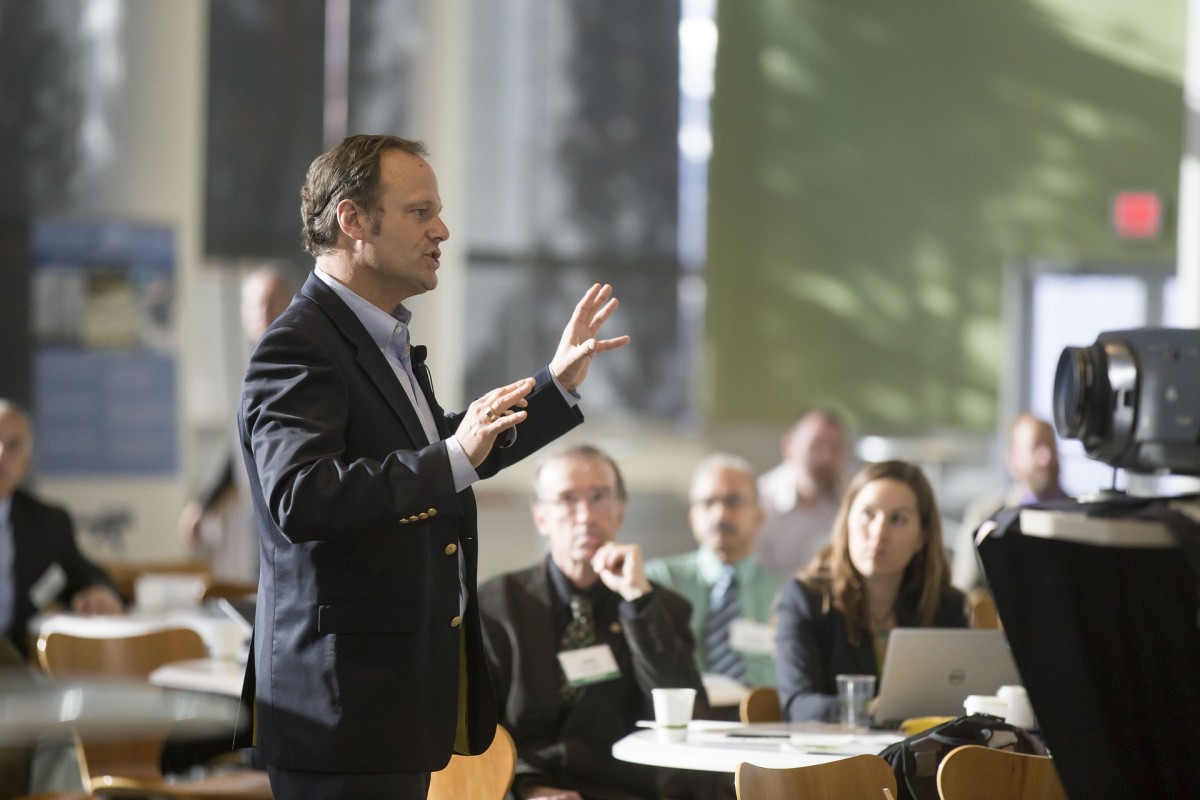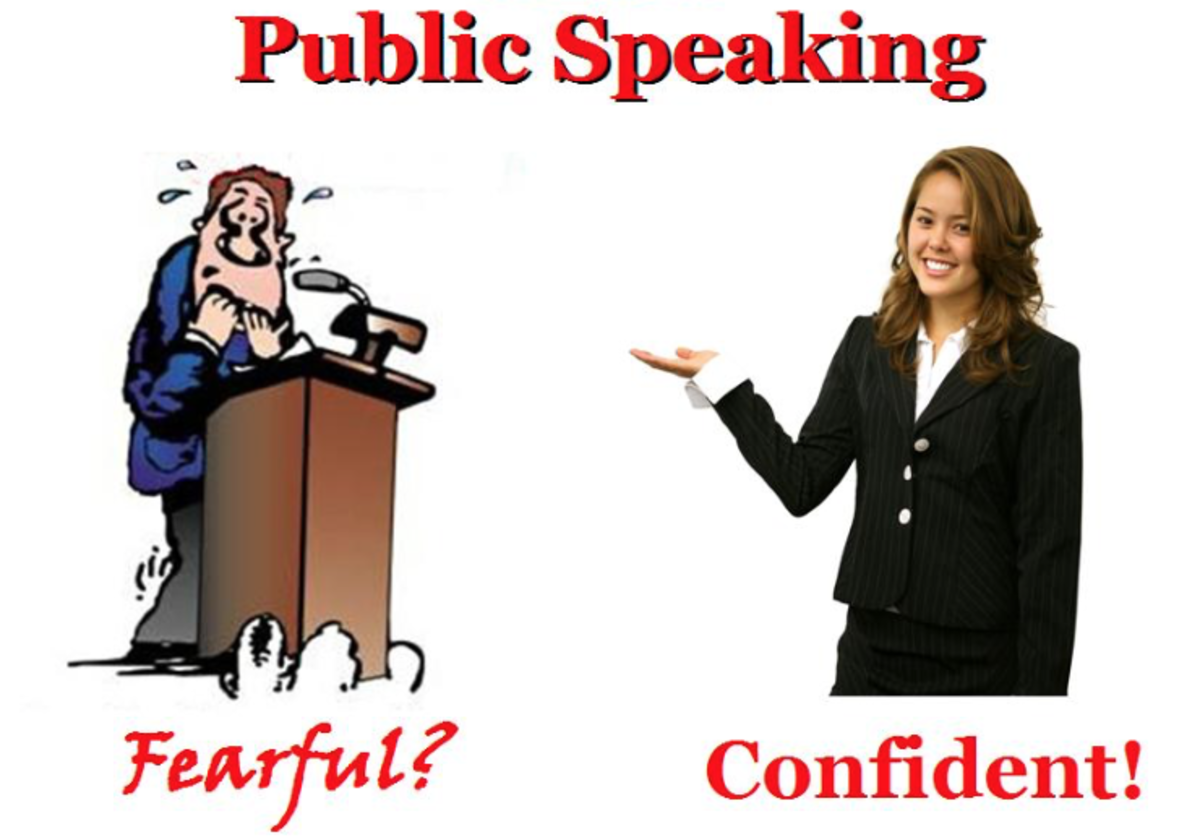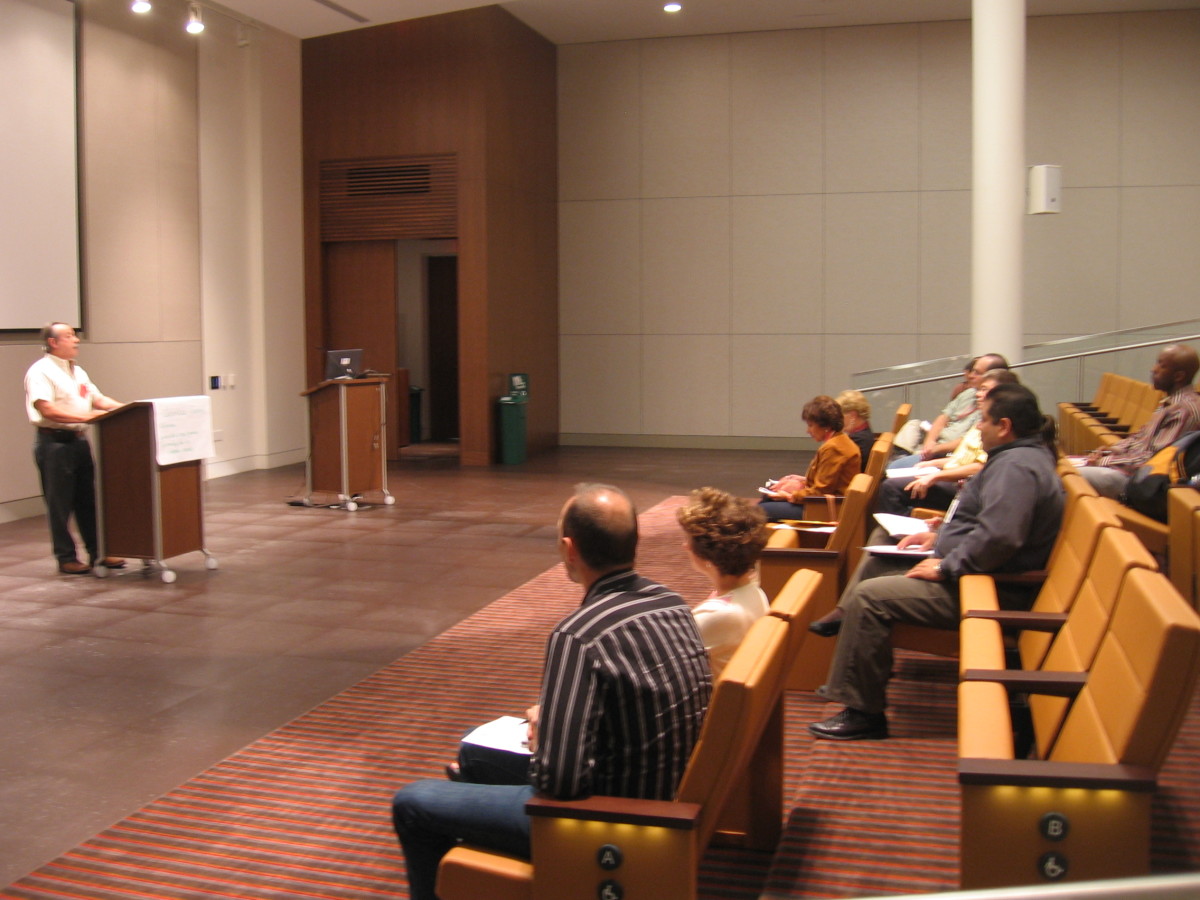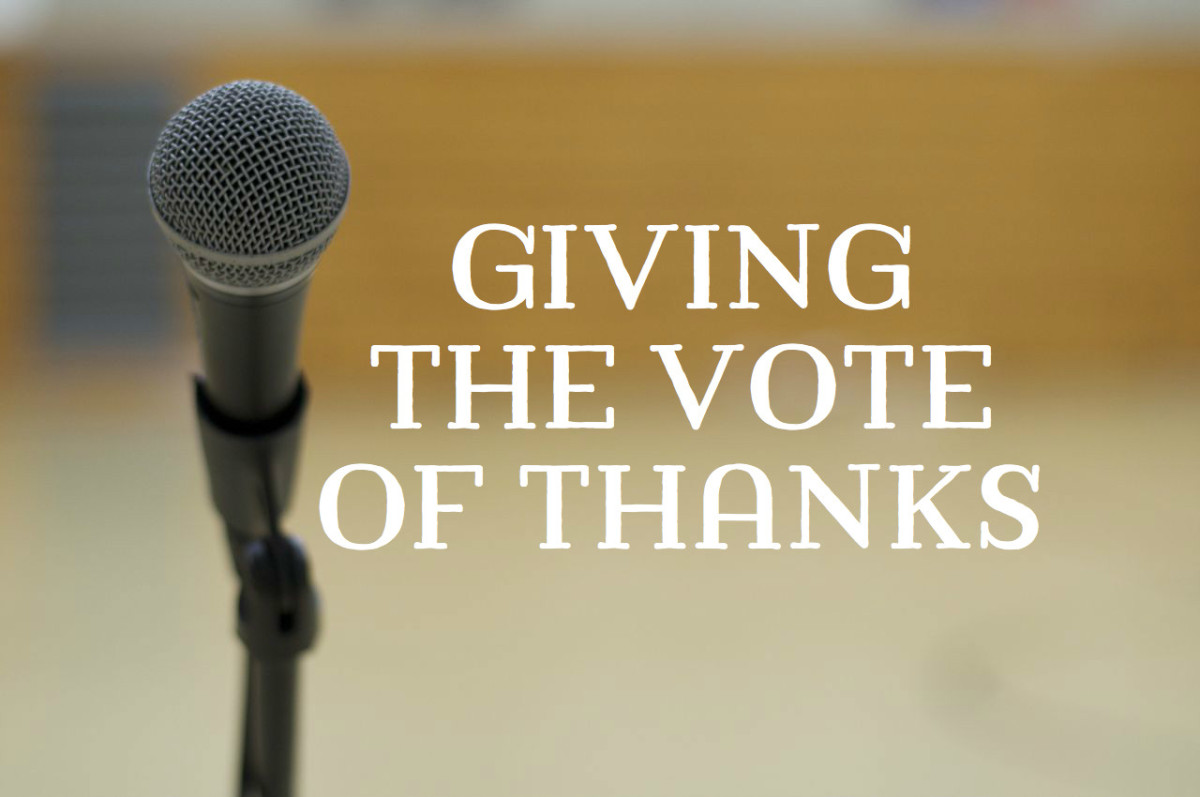Speaking Tips: Public Speaking How to Prepare a Great Speech
Success in Public Speaking
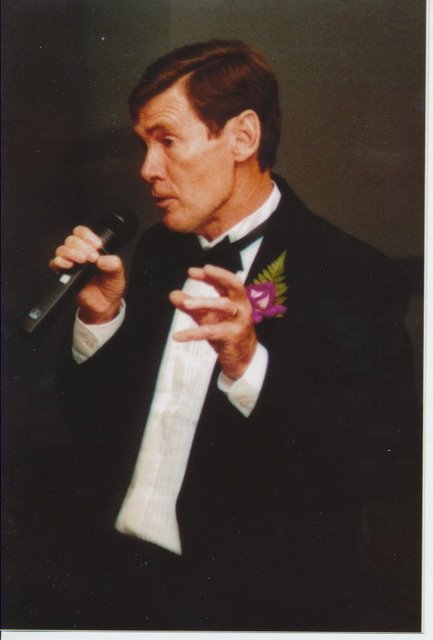

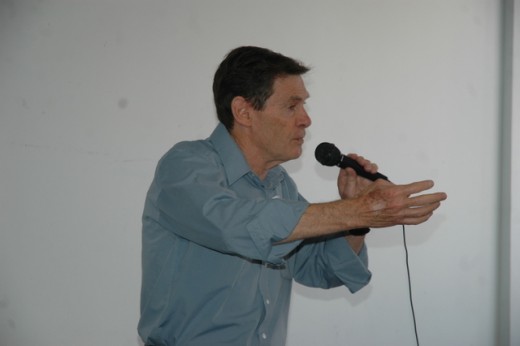
How to overcome the fear of public speaking - prepare well
Welcome to Speaking Tips: How to Prepare a Great Speech. By following what is written below, I hope you will find out just that little bit more about how to overcome the fear of public speaking.
So...If you want to present a great speech you need to know how to prepare it. This being written for those of you who came to this page because you've got to present a speech, an important speech, and you don't know quite where to start.
Now there are a number of things you could do. You could try to put it out of your mind, hoping that something might happen and you won't be called upon to do it afterall. Or you could decide to wait until the time of having to deliver that speech gets a bit closer. After all, it is still six weeks off.
Not a good move. The time to start is now. And I will tell you how.
Three Stages of Speech Preparation
There are three stages to speech preparation: remote, intermediate, and imminent. So let us deal with each of these in turn.
Remote. What is remote preparation?
This is when you look at such things as: What audience? how many? ages? gender? what organisation? - the obvious things. It is also the time you start thinking about the venue. Are you familiar with it? Can you get along and see it before hand?
What advantages and drawbacks does this venue have? Is the room likely to be too big? Too small? Are the acoustics right? Let's say they are, or you have no choice: the organisers are providing the room so it's "like it or lump it."
Also, what are you supposed to talk about? Do you have an option? How restricted are you in your subject matter? These are the considerations. None are absolutely urgent. But it's good to find out...and find out early.
Speaking Tips: Remote Preparation Continued
Determine what the general purpose of your speech is to be. Every speech has these three elements. But with each speech one or another of these predominates, depending upon your goal. Do you want mainly to entertain, to inform, or to persuade? It is said that Public Speaking is the Art of Persuasion. But this is not necessarily so. Comedians and humourists and storytellers want to entertain, mainly, not persuade. So be sure in your mind which of these three: Information, Entertainment, or Persuasion is the main thrust of your speech. This will provide you with what I call the General Objecive.
It is important, so be clear on this early.
Remote Preparation Continuing on...
Probably the most important thing in any speech is clarity of purpose as far as the speaker is concerned. If you're not clear on this, your audience, not matter how willing, won't be either. They won't know what you're driving at, or what you want.
So what is this most important thing?
It is your specific or particular purpose. You must be clear on this. The remote preparation, as you check on all those other things, will eventually bring this into your mind - if you don't know from the outset! You'll probably know quite early.
Once you've got it WRITE IT DOWN. Write it, define it; bring it into one short, terse sentence. And keep the piece of paper. Keep it safe. For now we come to the second segement of speech preparation: The Intermediate Preparation Stage.
Part of my audience at the Titanic Centenary held in 2012

Intermediate Speech Preparation
What is intermediate speech preparation?
Let us say that the scheduled speech day, which was orginally six weeks away, is now only three weeks off. You've checked all the other stuff. You're now closing in on the date you'll actually be delivering tht great speech. This is what I refer to as the intermediate stage.
Take out your piece of paper with your definition of what you speech aim is and place it on a table in front of you. Then, after familiarising yourself with it again: "think yourself empty" by jotting a brief note on the many scraps of paper you've got nearby. You might have a note for the idea you wish to use as your introduction, another for the main point, another for some supporting facts.Keeping writing as the ideas come. And they will come- in abundance. You might find you have too many, too much data, before you even start to organize what you have. This is the way it is.
Don't let this worry you. Let the creative juices flow. You are already well on your way to finding out how to overcome fear of public speaking just by having come this far.
Speaking Tips: Public Speaking How to Prepare a Great Speech -Imminent Preparation
Okay, you're now two weeks out from the big day. Get out the envelope. Sit at a clear table or desk, and spread all your notes out, face up. Place your Specific Purpose Definition right at the top in the centre. Then, looking very critically at all of those notes, throw out - yes, THROW OUT, any which do not fall within the parameters of that definition. What you have left, will make the outline of your speech: its introduction, its conclusion, the main points (no more than three of these, please) and the points which augment those three points.
You might find that of the thirty - or fifty or sixty - notes you had, you now have only ten or twelve. Excellent!
Now number these in the order in which you will present them in that speech. eg. Intro, Point One, augment point a and point b for point one. Point two, etc.. Put them in order with the numbers showing.
Now we're getting somewhere.
The writer speaking at the Polytechnic University in Hong Kong 2015

Imminent Preparation Continued
Using those notes, now in numerical order, write out your speech (or type it) After you've donethat, get out your stop-watch or timer. Also, get out your tape recorder.
Now read the speech out aloud. Read it slowly, putting in all the appropriate pauses. Time it. Play it back. Do it again. Time it.
Now take a sheet of cardboard, about A4 size and put the key words of each paragraph of that speech onto the piece of cardboard. You are never going to look at those speech notes again. You don't have to. You have the ideas in those headers on that carboard sheet.
Imminent Preparation Continues to Continue
Now, using only the carboard sheet or sheets as a memory jogger, read the speech out aloud, timing it as you do so. It will not be exactly as you wrote it. This will be your spoken language coming from your everyday, spoken vocabulary. Time it. Play it back.
You now have a week to go, roughly. Run through it again the next day. Leave it for two days, then go through it again, practicsing from memory, only looking at the card if you really have to. Now let it go three days, and do it one final time.
Know what? You're that familiar with the content of the speech now you won't forget it. Sure, it's a big, important occassion. But you're ready for it. Now, you're pretty confident that you now know how to present a great speech. You have the theory. You've practised at home. You're ready to go.
The Big Moment
The day comes. You get there early. Always do that if you can. Check everything's right: venue, mic, position your speaking from. You've done this with your Remote Preparation but things can change.
The moment arrives: Ladies and Gentlemen, says the MC. "I'd now like to present...."
And you go on and - "blow 'em away." Why? Because now you know how to present a great speech, and you prove if by doing just that.
Good luck, and God bless.
I hope the above has shown you in some small way how to overcome fear of public speaking. The information in Speaking Tips: Public Speaking How to Prepare a Great Speech has certainly stood me in good stead. I hope it will do the same for you.
Keep smiling
Tom.

